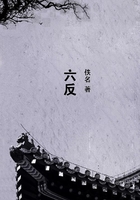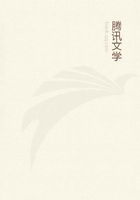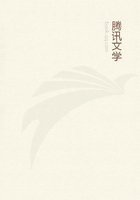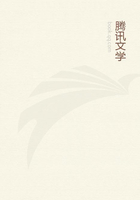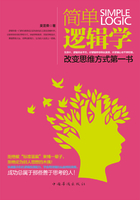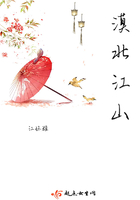Thus happily passed my days, and the more happily as I perceived nothing that could disturb or bring them to a conclusion; not that the cause of my former uneasiness had absolutely ceased, but I saw it take another course, which I directed with my utmost care to useful objects, that the remedy might accompany the evil.Madam de Warrens naturally loved the country, and this taste did not cool while with me.By little and little she contracted a fondness for rustic employments, wished to make the most of her land, and had in that particular a knowledge which she practiced with pleasure.Not satisfied with what belonged to the house, she hired first a field, then a meadow, transferring her enterprising humor to the objects of agriculture, and instead of remaining unemployed in the house, was in the way of becoming a complete farmer.I was not greatly pleased to see this passion increase, and endeavored all I could to oppose it;for I was certain she would be deceived, and that her liberal extravagant disposition would infallibly carry her expenses beyond her profits; however, I consoled myself by thinking the produce could not be useless, and would at least help her to live.Of all the projects she could form, this appeared the least ruinous: without regarding it, therefore, in the light she did, as a profitable scheme, I considered it as a perpetual employment, which would keep her from more ruinous enterprises, and out of the reach of impostors.With this idea, I ardently wished to recover my health and strength, that Imight superintend her affairs, overlook her laborers, or, rather, be the principal one myself.The exercise this naturally obliged me to take, with the relaxation it procured me from books and study, was serviceable to my health.
The winter following, Barillot returning from Italy, brought me some books; and among others, the Bontempi and la Cartella per Musica, of Father Banchieri; these gave me a taste for the history of music and for the theoretical researches of that pleasing art.Barillot remained some time with us, and, as I had been of age some months, I determined to go to Geneva the following spring, and demand my mother's inheritance, or, at least that part which belonged to me, till it could be ascertained what had become of my brother.This plan was executed as it had been resolved: I went to Geneva; my father met me there, for he had occasionally visited Geneva a long time since, without its being particularly noticed, though the decree that had been pronounced against him had never been reversed; but being esteemed for his courage, and respected for his probity, the situation of his affairs was pretended to be forgotten; or perhaps, the magistrates, employed with the great project that broke out some little time after, were not willing to alarm the citizens by recalling to their memory, at an improper time, this instance of their former partiality.
I apprehended that I should meet with difficulties, on account of having changed my religion, but none occurred; the laws of Geneva being less harsh in that particular than those of Berne, where, whoever changes his religion, not only loses his freedom, but his property.My rights, however, were not disputed, but I found my patrimony, I know not how, reduced to very little, and though it was known almost to a certainty that my brother was dead, yet, as there was no legal proof, I could not lay claim to his share, which I left without regret to my father, who enjoyed it as long as he lived.No sooner were the necessary formalities adjusted, and I had received my money, some of which I expended in books, than I flew with the remainder to Madam de Warrens.My heart beat with joy during the journey, and the moment in which I gave the money into her hands, was to me a thousand times more delightful than that which gave it into mine.She received this with a simplicity common to great souls, who, doing similar actions without effort, see them without admiration; indeed it was almost all expended for my use, for it would have been employed in the same manner had it come from any other quarter.
My health was not yet reestablished; I decayed visibly, was pale as death, and reduced to an absolute skeleton; the beating of my arteries was extreme, my palpitations were frequent: I was sensible of a continual oppression, and my weakness became at length so great, that I could scarcely move or step without danger of suffocation, stoop without vertigoes, or lift even the smallest weight, which reduced me to the most tormenting inaction for a man so naturally stirring as myself.It is certain my disorder was in a great measure hypochondriacal.The vapors is a malady common to people in fortunate situations: the tears I frequently shed, without reason; the lively alarms I felt on the falling of a leaf, or the fluttering of a bird; inequality of humor in the calm of a most pleasing life;lassitude which made me weary even of happiness, and carried sensibility to extravagance, were an instance of this.We are so little formed for felicity, that when the soul and body do not suffer together, they must necessarily endure separate inconveniences, the good state of the one being almost always injurious to the happiness of the other.Had all the pleasure of life courted me, my weakened frame would not have permitted the enjoyment of them, without my being able to particularize the real seat of my complaint; yet in the decline of life, after having encountered very serious and real evils, my body seemed to regain its strength, as if on purpose to encounter additional misfortunes; and, at the moment I write this, though infirm, near sixty, and overwhelmed with every kind of sorrow, I feel more ability to suffer than I ever possessed for enjoyment, when in the very flower of my age, and in the bosom of real happiness.


